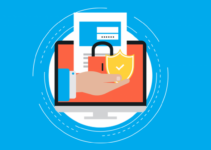When you apply for a credit card, do you think about how the company uses your data? And how does GDPR affect this?
Let’s find out.
What is GDPR?

source:blog.malwarebytes.com
GDPR (General Data Protection Regulation) is a legal requirement. Any business that collects, stores or reuses personal information must comply with it.
It was implemented across Europe in May 2018. Essentially, it demands that no company records personal data without client consent. Firms must also share how they use it. Customers can request that their details are deleted, too.
If they are legally required to do so, a company must retain data. However, GDPR grants service users more control over personal information.
How does it relate to credit cards?

source:forbes.com
It’s simple. All companies must follow GDPR, including Credit Reference Agencies. As you may already know, this kind of service stores data on individuals’ credit histories.
It pools information supplied by sources that you’ve had transactions with — from banks to bill companies.
It then calculates a personal credit score. This record typically informs an issuer’s decision to grant a credit card to an applicant. CRAs can still supply your data to lenders under GDPR law.
However, they must now provide details of any third parties that they have shared your information with. By law, they have to meet your request within 30 days.
Thanks to GDPR, you can find out who has viewed your credit score.
How can I boost my application?

source:forbes.com
GDPR can benefit hopeful borrowers, especially those who want to keep track of their spending history.
Seeing who’s viewed your credit score is important. But you may also want to improve it — creditors tend to favour applicants with a healthy credit score. In other words, they want to see that prospective customers are able to pay their bills on time. You can prove that you do; you just need to stay on top of your finances and to learn how to do it, click here.
It’s a common myth that checking your record can negatively affect it. You can actually view it as many times as you like. In fact, it’s an important part of managing your personal finances, as you can correct any wrong information, fight unfair defaults on your file or cancel unused credit or store cards.
Credit cards can be valuable tools. For many, they’re essential. But it’s only right that you should want to know how issuers use your data. With these tips, you may be better able to understand the application process.





